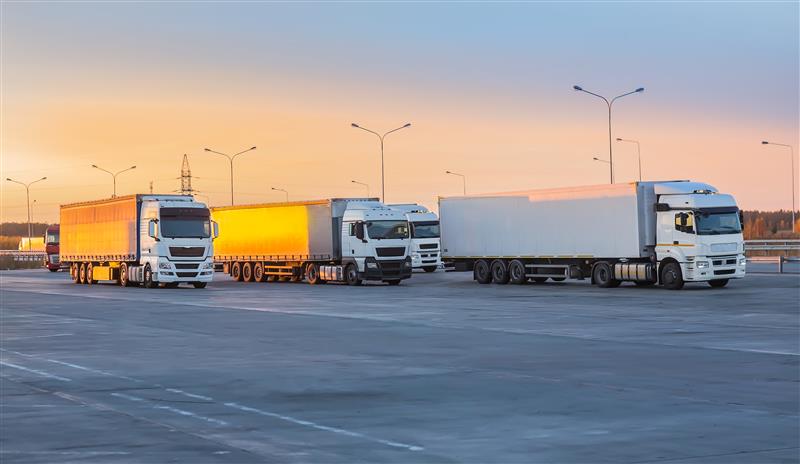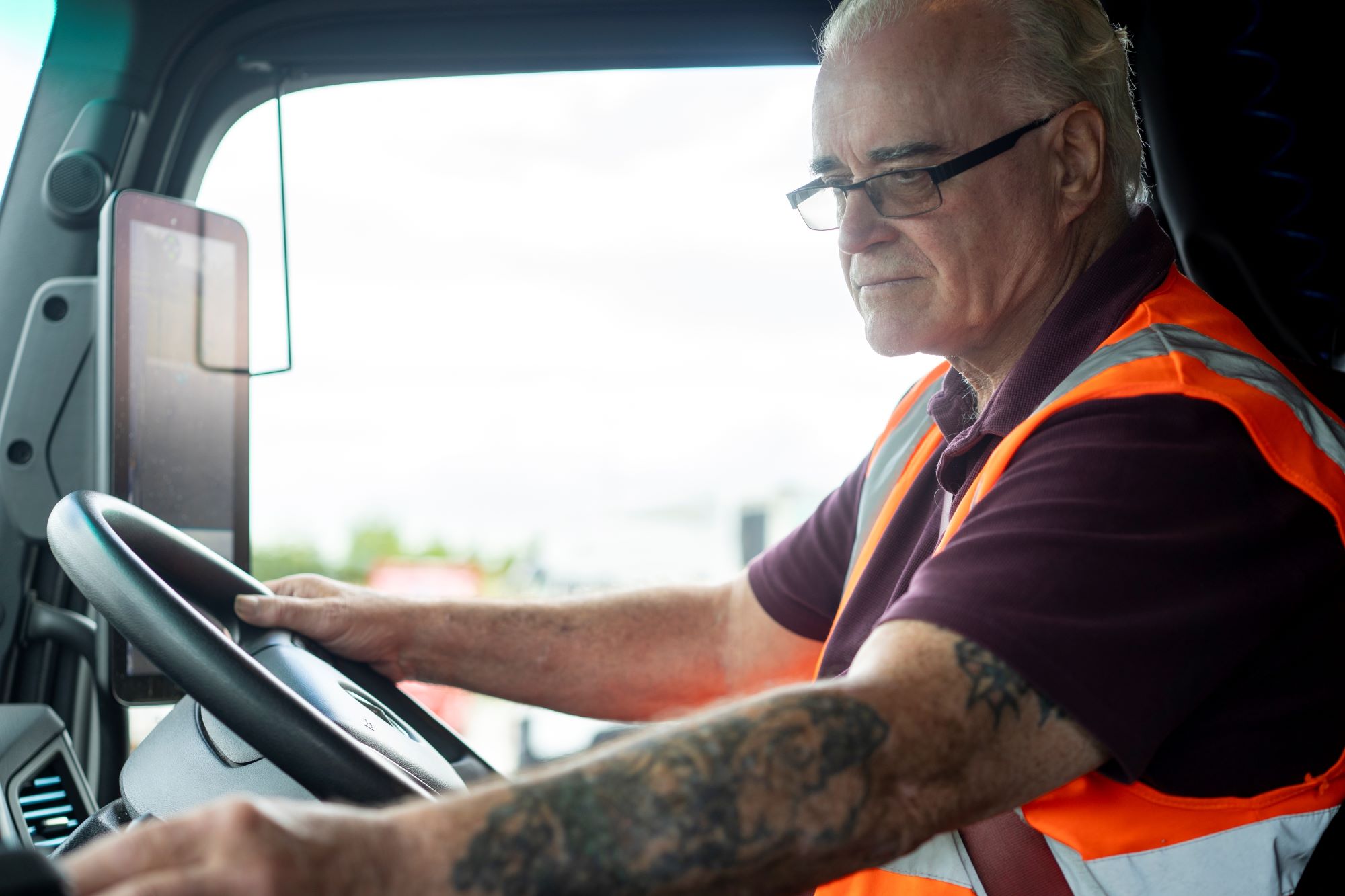
Guest
I camion possono circolare in Europa la domenica?
Creato: 23/12/2024
•
Aggiornato: 23/12/2024
La gestione dei divieti di circolazione domenicale dei camion in Europa richiede una comprensione completa delle normative specifiche di ciascun Paese, delle variazioni stagionali e di strategie efficaci. Investendo in un'accurata pianificazione degli itinerari, rimanendo informati, ottimizzando le operazioni e sfruttando la tecnologia, le flotte aziendali possono mitigare l'impatto di queste restrizioni.
In questo blog esploriamo le diverse regole di una serie di Paesi europei e approfondiamo i modi migliori per adattarsi ad esse.
Regolamenti specifici per ogni Paese
Ogni Paese ha le proprie leggi sul divieto di guida domenicale, che possono variare notevolmente.
Germania
Dalle 12.00 alle 22.00 dell'ultimo giorno della settimana, i camion che superano le 7,5 tonnellate non possono circolare. Tuttavia, questo non è necessariamente un deterrente. Le operazioni di trasporto combinato possono godere di agevolazioni speciali: il trasporto su rotaia e su strada è consentito entro 200 chilometri dalle stazioni di carico o scarico, mentre il trasporto portuale o stradale è consentito entro 150 chilometri dai porti. È esente anche il trasporto di specifiche merci deperibili, come latte fresco, prodotti caseari, carne, pesce, frutta e verdura.
Inoltre, alcuni veicoli e operazioni non sono soggetti al divieto, come i veicoli di emergenza coinvolti in servizi di recupero, rimorchio o soccorso stradale.
Francia
In questo territorio le limitazioni alla circolazione sono simili a quelle della Germania e si applicano agli autocarri che superano le 7,5 tonnellate. Queste limitazioni si applicano la domenica e nei giorni festivi dalle 12.00 alle 22.00.
Inoltre, il sabato e il giorno precedente le festività nazionali, la circolazione è vietata dalle 22.00 alle 24.00. Durante l'estate, inoltre, alcuni sabati specifici sono vietati dalle 7.00 alle 19.00.
Esistono esenzioni per alcune merci, tra cui prodotti lattiero-caseari e carne, e per i veicoli di emergenza. La violazione di questi divieti può portare a multe significative, che vanno da 750 a 3.750 euro rispettivamente per le persone e le aziende.
Italia
La domenica e i giorni festivi, dalle 9 alle 22, i camion non possono circolare in Italia. Vale la pena notare che nei mesi di giugno, luglio, agosto e settembre l'embargo inizia prima, alle 7 del mattino, anche se termina comunque alle 22.
Il Paese impone inoltre ulteriori restrizioni durante i mesi estivi. A luglio, il sabato c'è un embargo dalle 8.00 alle 16.00, che si estende dalle 8.00 alle 22.00 ad agosto.
Sebbene queste siano le regole generali, è fondamentale sapere che potrebbero esserci variazioni locali o restrizioni temporanee su alcune tratte. Come in Francia e in Germania, possono essere applicate alcune eccezioni per determinati tipi di merci o servizi di emergenza.
Spagna
Per quanto riguarda la Spagna, lo scenario è molto più complesso. Esiste un mosaico di divieti regionali, in particolare in Catalogna. Le restrizioni alla guida dei camion possono cambiare in base alle normative locali, alle festività e a percorsi specifici. I camionisti che operano qui devono consultare le linee guida locali per garantire la conformità.
Oltre alle ingiunzioni per le domeniche e i giorni festivi, sono previste limitazioni anche per alcuni sabati durante i mesi estivi. In genere si applicano dalle 8.00 alle 12.00, soprattutto nei mesi di luglio e agosto, quando il traffico è più intenso a causa dei vacanzieri.
Altri Paesi
Per quanto riguarda gli altri Paesi europei, molti di essi applicano i propri divieti di circolazione domenicali. L'Austria, ad esempio, impone che i camion di peso superiore a 7,5 tonnellate non possano circolare la domenica dalle 12.00 alle 22.00. La Svizzera mantiene un regime simile, con veicoli di peso superiore a 3,5 tonnellate che non possono circolare per tutto il giorno. La Svizzera mantiene qualcosa di simile: i veicoli di peso superiore a 3,5 tonnellate non possono circolare per tutto il giorno.

Strategie per le flotte aziendali
Per superare le restrizioni domenicali alla guida dei camion, è fondamentale un'efficace pianificazione del percorso. Utilizzando una tecnologia avanzata e un pensiero strategico, gli operatori delle flotte possono ottimizzare i loro processi.
Utilizzare il GPS e il software di pianificazione dei percorsi
L'impiego di moderni sistemi GPS e di software di pianificazione dei percorsi consente alle flotte e ai loro conducenti di individuare i percorsi più efficienti, evitando le aree con divieti di circolazione. Questi strumenti possono fornire aggiornamenti in tempo reale sulle condizioni stradali, assicurando che gli autotrasportatori possano prendere decisioni informate mentre sono in viaggio.
Considerare percorsi alternativi
Un'altra idea è quella di esplorare diversi modi per raggiungere il luogo in questione. Sebbene si possa essere tentati di seguire il percorso più diretto, i percorsi alternativi possono spesso far risparmiare tempo ed evitare potenziali multe. Tali deviazioni possono essere leggermente più lunghe, ma possono aiutare ad aggirare aree con embarghi severi, consentendo operazioni più fluide.
Pianificare i ritardi
Data la possibilità di contrattempi causati dalla congestione del traffico o da embarghi alla guida, è saggio per le società di flotte prevedere del tempo aggiuntivo nei loro programmi. Un approccio proattivo offre migliori opportunità di mantenere la puntualità delle consegne, anche di fronte a sfide inaspettate.
Tenersi informati
Rimanere aggiornati sulle normative e sulle condizioni del traffico in tempo reale è altrettanto fondamentale. Per questo motivo è saggio utilizzare app e siti web specifici: questi forniscono ai camionisti aggiornamenti in tempo reale sulla chiusura delle strade, sugli incidenti e sulla congestione del traffico, consentendo loro di modificare i percorsi ed evitare eventuali ritardi.
Molte associazioni di trasporto e fornitori di logistica offrono servizi di abbonamento per gli avvisi sul traffico. Iscrivendosi a queste notifiche, gli operatori delle flotte possono ricevere informazioni su eventuali modifiche alle regole di guida, assicurandosi di rispettarle.
Sfruttare la tecnologia
L'utilizzo della tecnologia può migliorare l'efficienza operativa e la conformità alle normative sui tempi di guida.
I sistemi telematici consentono alle flotte aziendali di monitorare la posizione dei veicoli, il consumo di carburante e il comportamento dei conducenti. I dati possono essere preziosi per ottimizzare i percorsi. Inoltre, la tenuta di registri digitali semplifica la registrazione e fornisce una documentazione essenziale in caso di audit.
Altrettanto importante è la tecnologia per semplificare i pagamenti, ed è qui che SNAP può aiutare.
Iscriviti a SNAP
Se cercate un parcheggio sicuro, un autolavaggio o altri servizi per le vostre flotte, le nostre soluzioni rendono il pagamento molto più conveniente. Date un'occhiata a ciò che SNAP può offrirvi oggi.


